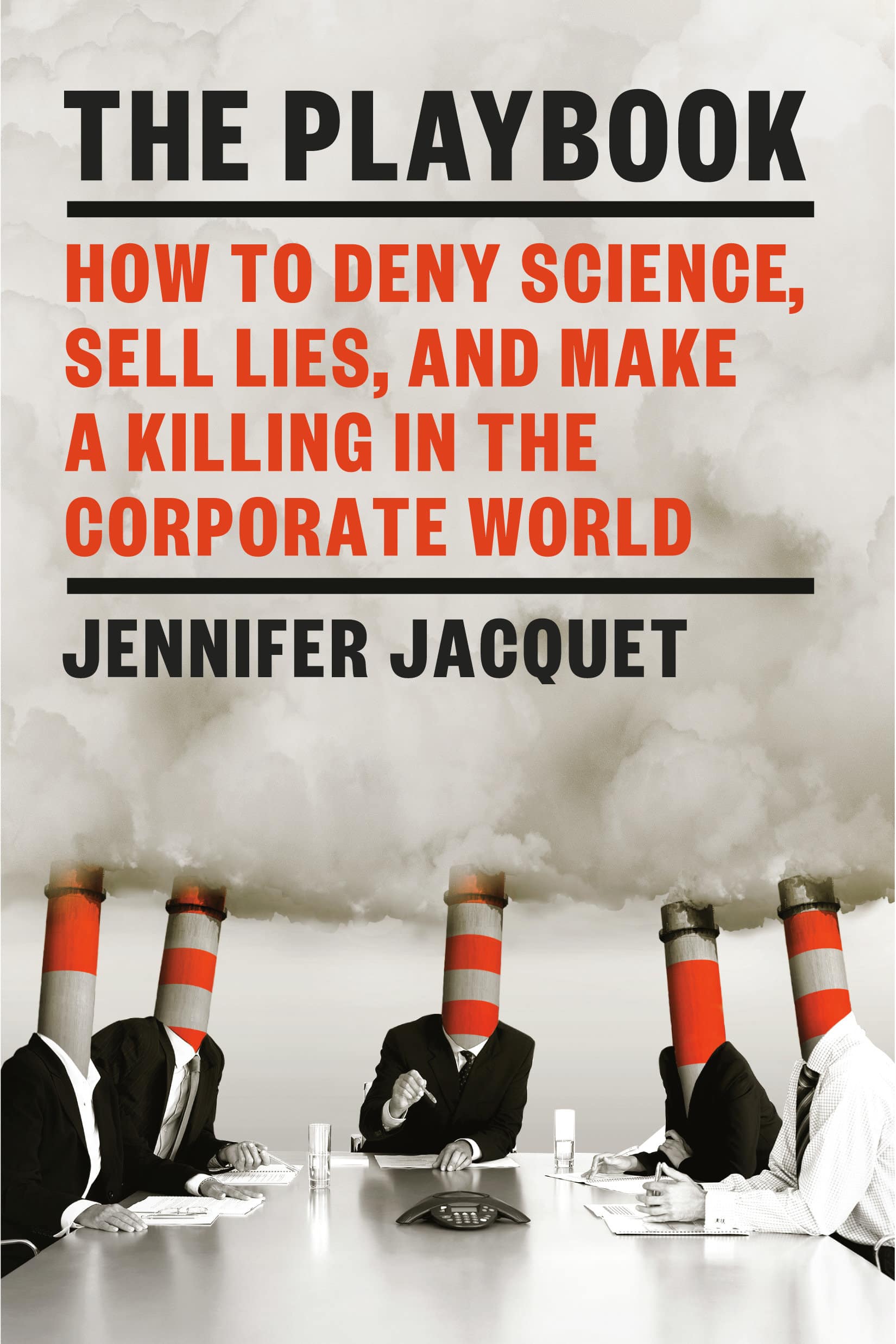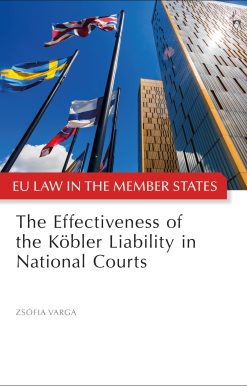The Playbook: How to Deny Science, Sell Lies, and Make a Killing in the Corporate World
19.00 JOD
Please allow 2 – 5 weeks for delivery of this item
Description
From an astute observer of business behavior and expert in climate denial comes a thought-provoking explanation of how corporations delay, distract, and deflect blame and spread disinformation surrounding health issues, pollution, and climate change.“Brilliantly subversive and witty. If you want to be a vile, greedy capitalist, this how-to book will be a great help. And if you want to identify vile, greedy capitalists, it will show you how to recognize them. A landmark book.” —Brian EnoAre you a corporation out to make your fortune at any cost? Are you worried about “facts” and “experts” getting in the way of your profits? Do you wish you could make scientists, journalists, and anyone who asks questions about your suspect business practices disappear? Now you can. Whether you are selling tobacco, dealing in oil, or pushing pharmaceuticals, denying climate change or exploiting workers, The Playbook is here to help you obfuscate your way to what you want. Including how to: Massage the statistics to suit your needs. Or, even better, fund studies to make up some new onesAttract and cultivate university professors who have an axe to grind and are short of cashMake your problem somebody else’s problem—ideally the government’sRemember: Tame journalists, PR firms, think tanks, lawyers, and threats of physical violence are your friends! Follow these rules and you are guaranteed to make a killing. It’s economic sense, after all.
Additional information
| Weight | 0.39 kg |
|---|---|
| Dimensions | 2.34 × 14.56 × 21.7 cm |
| PubliCanadation City/Country | USA |
| by | |
| format | |
| Language | |
| Pages | 240 |
| publisher | |
| Year Published | 2022-7-12 |
| Imprint | |
| ISBN 10 | 1101871016 |
| About The Author | JENNIFER JACQUET is an associate professor in the Department of Environmental Studies and director of XE: Experimental Humanities & Social Engagement at New York University. The author of Is Shame Necessary?, she lives in New York City |
“Brilliantly effective . . . gleefully amoral . . . a machiavellian secret guide for executives worried about what the latest science might mean for their business.” —The Guardian“If you feel exhausted from constantly taking the high road, The Playbook offers an enticing alternative . . . [with] Jacquet’s dry humor suffusing each chapter, . . . the book's tongue-in-cheek format is a chilling realization that the villains in The Playbook are extraordinarily banal. The tactics that enable their misconduct have been recycled across decades.” —Scientific American“This brilliantly subversive and witty book lays bare the techniques of manipulation and disinformation that keep the rich and powerful rich and powerful. It’s a handbook to show you all their tricks—with working examples. If you want to be a vile, greedy capitalist, this how-to book will be a great help. And if you want to identify vile greedy capitalists it will show you how to recognise them. It’s a landmark book.” —Brian Eno“This whip-smart and delightfully snarky exposé gives readers the tools to recognize and refute corporate deception . . . Fashioned as a strategy manual, Jacquet’s satirical advice explains . . . how to challenge the existence of a problem, the integrity of those who raise it, and the need for policies to address it.” —Publishers Weekly “A savage satirical stab at corporate malfeasance draws blood…[Jacquet] takes an original approach to indicting the ethical vacuum that besets much of big business. [The Playbook is] a sharp warning to corporations that deep pockets and armies of accomplices won’t stall a reckoning forever.” —Kirkus Reviews |
|
| Table Of Content | Executive Summary xv 1. Denial: A Fiduciary Duty 3 2. The Arsenal 25 3. Recruiting University Experts 43 4. Strategic Communication 69 5. Challenge the Problem 89 6. Challenge Causation 105 7. Challenge the Messenger 121 8. Challenge the Policy 137 9. Outside Opportunities 151 10. Near- Term Threats 161 Appendix 171 Glossary of Terms 177 Notes 183 |
| Excerpt From Book | EXECUTIVE SUMMARY Every executive should own a copy of The Playbook and hope never to have to use it. But if there comes a time that scientific knowledge poses a risk to business operations, The Playbook is a guide on whom to hire, how to recruit experts, tips for effective communication, and ways to successfully challenge the science, the policy, and the scientists, reporters, and activists using science to further their policy agendas. The Playbook is for every company. It outlines a universal strategy that is both offensive and defensive and is the predictable result of the central aim of the corporate structure—the pursuit of profit. The Playbook highlights achievements from a century of delivering strong financial performance in the face of challenging scientific “evidence” and how to modify scientific standards of evidence to outmaneuver attacks. It identifies useful arguments made by outsiders that companies can amplify. It also lays out near-term threats. Case studies related to upcoming material are provided before each section to help refine practical skills. The business case for challenging scientific evidence that implicates a product in a social problem is straightforward. By delaying costly and intrusive science-based regulations, the creation of scientific disagreement buys time and saves money. As with many other cost-saving operations that are perfectly legal, but are nevertheless socially undesirable—such as cutting wages, moving manufacturing to countries with fewer regulations, using offshore tax havens—the unmaking of scientific agreement must be treated with discretion. Keep The Playbook confidential. A successful campaign begins with a powerful arsenal. For tasks beyond the expertise or moral inclination of the internal workforce, there is outsourcing. A network of third-parties—lawyers, reporters, experts, public relations firms, think tanks, nonprofits, and trade associations—is necessary to mount a solid defense. The Playbook also includes a recruiting tool for attracting and cultivating university researchers who can challenge scientific research with a patina of independence. The assembled network will be equipped with a variety of tools, such as press releases and advertorials, and various arguments and rhetorical devices. This arsenal provides a defense against any aspect of the scientific process that implicates a product in a problem. The arsenal is deployed to carry out the four-pronged strategy: 1) challenge the problem, 2) challenge causation, 3) challenge the messenger, and 4) challenge the policy. Disputing a problem identified using the scientific method can be done with varying levels of intensity. In some cases, the problem may be denied outright. In others, the problem may disappear under scientific reanalysis, it may be shown to affect only a small area or number of individuals, or the problem may arguably be so complicated that it is obvious that more research (and time) is needed. If forced to accept the problem, the option remains to challenge the science of causation. Call into question the experimental design, the data, the methods, or the statistics. Emphasize alternative causes and fund studies that provide counterevidence. Focus on scientific uncertainty, the lack of scientific consensus, and the scientific dissent. If there is no genuine disagreement, create it. Know that any standard of scientific evidence can be disputed. For scientists, activists, and reporters whose work will ultimately put business operations at risk, it may be necessary to call into question their reputation. Claim they are apocalyptic, biased, doom and gloom, hysterical, or radical. Intimidate or coerce them. These tactics have the added benefit of discouraging young professionals from asking similar questions (the so-called “chilling effect”). If the weight of scientific evidence is beginning to lead to policy discussions, challenge proposed regulations in much the same way as the problem or its cause. Claim that any regulation represents government overreach. Prolong the debate about which policy is most effective for as long as possible. Again, this buys time and saves money. The overarching goals and strategies around challenging scientific knowledge that threatens business operations have remained the same, but some of the maneuvers, along with the media environment and culture, have been modernized. Many of the activities that companies previously carried out themselves are now subcontracted to public relations firms, law firms, and trade associations, similar to how manufacturing companies have sold off the parts of their supply chain with the greatest liability to middlemen. The Playbook will inspire thinking on how circumstances might change yet again. There will also be opportunities to boost independent arguments that reinforce the position that government regulation is difficult, damaging, or futile. For instance, independent experts unrelated to any business or industry may claim that some problems, like climate change, are too complex to solve. Others may insist that policy inaction is the result of various failings by scientists, such as their lackluster communication skills. These outside ideas help buttress the mission to postpone regulatory action. Finally, near-term threats are identified that could jeopardize the ambition of these efforts, ranging from internal conflict within a workforce, high-stakes litigation, government firewalls that prevent industry involvement in decision making, rumors of a new Museum of Agnotology devoted to educating the public about the creation of ignorance, and a new manuscript that reveals many of the details of The Playbook (see Appendix). However, there is every reason to believe free enterprise will continue to influence, control, and unmake knowledge generated through the scientific process for years, if not decades. The Playbook will help ensure that success. |
Only logged in customers who have purchased this product may leave a review.






Reviews
There are no reviews yet.